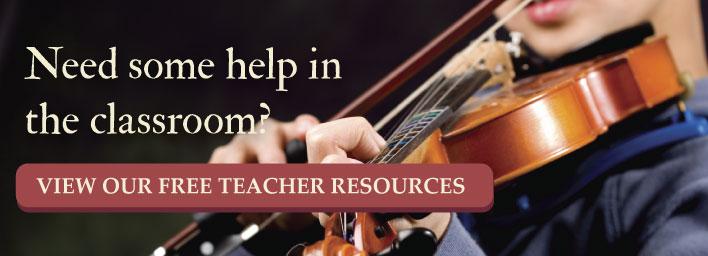7 Things All New Music Teachers Should Know

 After the end of a trying day, it’s common for new music teachers to feel that their MusEd degree coursework failed to prepare them in one significant area: how to conduct day-to-day tasks. It almost seems like there should have been an exit exam that dealt with unruly students, classroom management, and other ways to ensure that your teaching methods succeed.
After the end of a trying day, it’s common for new music teachers to feel that their MusEd degree coursework failed to prepare them in one significant area: how to conduct day-to-day tasks. It almost seems like there should have been an exit exam that dealt with unruly students, classroom management, and other ways to ensure that your teaching methods succeed.
It can be difficult as a new music teacher to find your way. Being able to play a musical instrument is an artisan skill. Similarly, being able to convey that knowledge to another person requires a level of intuitive interaction that is only learned through practice. And, just as it took you years of patient training to arrive at your current playing level, teaching is a skill that is built through experience.
However, you can speed up the process slightly. This useful list of seven things all new music teachers should know can help get you started off on the right note.
It’s all in the timing. It’s easy to lose track of time demonstrating the proper holds or in practicing (perfecting) the same few bars of music. Likewise, your class could breeze through your lesson and you’ll end up with an extra 30 minutes left of class. Managing your class time is crucial. Make sure that you have a clear view to a large clock and that you plan your lessons realistically, based on your number of students and the difficulty level. It’s also a good idea to have a few ideas ready to take advantage of any extra time. Eventually, effective time management will become second nature, but as a new music teacher, you’ll need to keep a close watch on your timing.
Your limits will be tested. It’s human nature to test boundaries and your students will undoubtedly explore theirs. Be prepared to have your buttons pushed, be exasperated, and face early challenges to your authority. The actions and techniques will vary depending on the age of the students you teach; but some common, really maddening ones include:
- Are we going to actually play music today?
- I didn’t get to practice. I had more important homework.
- I left my instrument at home, so I brought my stuff to study for history. And on, and on…
Solicit Colleague Support. No matter what you are facing as a new music teacher, whether it involves finding a method that a student understands or dealing with a disciplinary issue, your fellow colleagues have been there and gotten through it. Reaching out for help among your contemporaries is one of the best ways a new teacher can tap into invaluable resources and gain practical wisdom that can be applied to the job. In addition to your immediate peers, there are many organizations, such as the Music Teachers National Association and the American String Teacher Association (ASTA) that can help provide insights into being a more effective educator. The various conferences and mentoring program provided by the ASTA are particularly helpful.
Find a way to replenish your patience. As was mentioned, imparting an artisan skill is difficult and your students will discover inventive new ways to make you lose your cool. Either way, you’ll need a full supply of patience to meet the challenges inherent in teaching music. Therefore, find a way to restore your stock of serenity, either each day, or on a weekly basis. And, keep reminders handy about how difficult it was to learn a new instrument; it will help maintain your empathy. Without creating ways to restock your patience, you, your students, and your teaching will suffer.
Learn to recognize problems early. Being a great music teacher involves being observant. Look for warning signs in the approach students take towards their playing or learning habits, but don’t automatically assume that an unorthodox method is wrong. Some problems will be obvious, so you should learn to recognize those types first.
Keep your love of music alive. Many new teachers get so involved in their class routine that they forget to keep their own passion for music alive. It’s important to periodically indulge in your favorite musical pastime, especially for new music teachers. You need to remember why you love music and why you’ve chosen to pursue an educational career. Rebuilding your own enthusiasm will naturally make you a more effective instructor.
Remember that teaching is a lifelong learning process. You never stop growing as an educator, especially if you teach music. New styles and music applications are being developed constantly and you’ll need to adapt, learn, and alter your methods as you build your experience. Being a music teacher is a fulfilling, rewarding career, but like all worthwhile pursuits, it requires dedication and determination. Don’t forget that there will always be new horizons to reach in your chosen profession.


